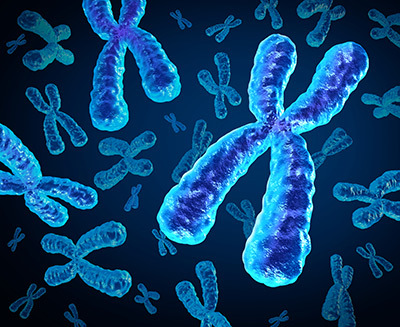
A growing body of research across disease areas and disciplines continues to demonstrate that sex and gender are important variables that influence health and disease. On a broad level, sex is a biological variable (based on anatomy, physiology, genetics, and hormones), whereas gender is considered a social and cultural variable—encompassing gender identity and expression, as well as social and cultural expectations and perceptions of gender in society (see What are Sex & Gender?).
A key part of ORWH’s mission is advancing our knowledge of how sex and gender influence health and disease and accelerating the application of this knowledge across research and clinical practice to improve the health of all. Since spearheading the NIH Policy on Sex as a Biological Variable (SABV), ORWH, in collaboration with its NIH partners and other Federal agencies, has continued to create and disseminate resources that encourage researchers and clinicians to consider SABV at all stages of the research process (see Related E-Learning Courses below). In addition, ORWH leads and supports several research programs that explore the influences of sex and gender in health and disease, such as the Specialized Centers of Research Excellence (SCORE) on Sex Differences program and the sex and gender research project grant (R01), described below.
Policy
Spearheaded by ORWH, this landmark NIH Policy on Sex as a Biological Variable (SABV) took effect in 2016 and outlines NIH’s expectation that sex as a biological variable will be factored into research designs, analyses, and reporting in vertebrate animal and human studies as scientifically appropriate. ORWH continues to invest in efforts to facilitate the adoption of the SABV policy across the NIH intramural and extramural communities, as well as in the greater scientific community.
Research Programs & Funding Opportunities
The SCORE program funds and supports Centers of Excellence around the country that serve as vital hubs for research exploring sex differences in health and disease—providing pilot funding, training, and education for researchers. Each center has three interrelated research projects headed by leaders in the field of sex and gender.
The Intersection of Sex and Gender Influences on Health and Disease (R01) is NIH’s first investigator-initiated, disease-agnostic R01 funding opportunity on sex and gender. It encourages researchers across many scientific disciplines to examine how factors related to sex and gender intersect with health and disease.
The BIRCWH program connects junior faculty to senior faculty with shared interest in women’s health and sex differences research. The program provides research support for junior faculty members—of all genders—as they conduct interdisciplinary basic, translational, behavioral, clinical, and/or health services research relevant to women’s health.
The U3 Administrative Supplement Program supports interdisciplinary research focused on intersectionality and health among populations of women that are understudied, underrepresented, and underreported in biomedical research.
The GENDER R25 (RFA-OD-22-015) is a funding program to support the development of sex- and gender-focused courses, curricula, and methods that can be widely utilized across disciplines and will be made available along with ORWH’s other online courses and interprofessional resources.
Frequently Asked Questions:
How can I ensure that my application will be considered for this NOSI?
Applications must include NOT-OD-24-038 in the Agency Routing Identifier field (box 4B) of the SF424 R&R form. Applications without this information in box 4B will not be considered for this NOSI.
Does this NOSI apply to research or training grants?
The list of parent announcements can be found in the NOSI linked here.
Who should I contact with questions?
Scientific contacts for participating institutes, centers, and offices (ICOs) can be found in the NOSI linked here.
The most robust experimental designs include consideration of both sex and gender (SAGE). The SAGE Program, which began in FY13 and continued through 2024, provided supplemental funding to awarded NIH grants so that investigators could explore possible influences of sex and gender on their research hypotheses and results. In 2024, the SAGE program was sunset because the consideration of sex has become more integrated in research design and analysis across NIH. ORWH continues to fund research on the influences of sex and gender in health and disease through other programs, such as the Specialized Centers of Research Excellence (SCORE) on Sex Differences program and the Intersection of Sex and Gender Influences on Health and Disease (R01).
Conferences & Collaboratives
Together with ICO partners, ORWH hosted a scientific workshop in October 2022, titled “Gender and Health: Impacts of Structural Sexism, Gender Norms, Relational Power Dynamics, and Gender Inequities.” The workshop included discussions on methods and best practices for health research on gender roles, gender norms, and gender inequity, as well as the landscape of NIH-supported research in this area.

